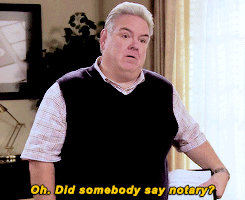#Estate Disputes
Explore tagged Tumblr posts
Text
Legal Bases for Challenging a Will
The Gormley Law Office is pleased to share this information on estate litigation and challenging a will. In this article, we’re talking about the reasons, or legal bases, for contesting a will. If you have specific questions about your situation or you suspect there is something not quite right going on with a family member’s estate, give us a call at (866) 375-8940 to discuss your individual…

View On WordPress
#Attorney Involvement#Coercion#Contesting a Will#Deadline Stress#Errors in Will Execution#Estate Disputes#Estate Law#Estate planning#Executor Misconduct#Family Estate#Financial Settlement#Forgery#Fraud#Hot Water (Legal Consequences)#Inheritance Issues#Legal Basis for Will Contest#Legal Competence#Legal Consultation#Legal Reasons to Contest a Will#Legal Strategies#Litigation#Manipulation#Omitted Spouse or Child#Probate#Property Disputes#Settlement#Testator#Undue Influence#Will Revocation
0 notes
Text
https://x.com/AmericandosN/status/1702658659648503843?t=ZjVHzCxeqbM8FNHDtE8s2A&s=09

Fam, did y'all know about this? #KamalaHarris snatched #NinaSimone's estate away from the direct descendants of the High Priestess of Soul!
Nina Simone’s daughter and grandchildren have declared they will no longer be silent, claiming her estate had been “taken away” from them and they are placing the blame on Vice President Kamala Harris.
It kicked off on Friday evening when RéAnna Simone Kelly, the daughter of Simone’s daughter Lisa Simone Kelly, praised Chlöe Bailey’s sexy rendition of the singer’s iconic song “Feeling Good”.
“Everyone’s coming at @ChloeBailey for her performance… But what y’all don’t understand is that grandma was a free-spirited woman herself,” RéAnna tweeted. “She would’ve loved that performance as much as I do! Relax. Chloe killed it.”
“Grandma was unapologetically herself,” she added in a follow-up tweet. “She was a muhhhfuckin badass woman who did what she wanted when she wanted. She was a sexual woman and she expressed that. Educate yourselves! If grandma could, she probably would’ve done that performance herself.”
Still scrolling through comments about Simone and her legacy, RéAnna came across a tweet questioning why her estate would make a Twitter account for the singer years after her death in 2003—and she decided it was finally time to air her grievances.
“We as her family don’t run her estate anymore,” the 22-year-old declared. “It was taken away from us & given to white people. Our family name was DRAGGED in the media. We get NO royalties, nothing. Wanna hold someone accountable? Ask Kamala Harris why she came for my family.”
Nina’s granddaughter here. My family doesn’t run her estate anymore. It was taken away from us & given to white people. Our family name was DRAGGED in the media. We get NO royalties, nothing. Wanna hold someone accountable?Ask Kamala Harris why she came for my family #NinaSimone https://t.co/mMXOz7iLxn— RéAnna Simone Kelly (@reasiimone) June 19, 2021
The iconic jazz singer’s family gripe with Harris goes back to 2013, when Harris was serving as California’s Attorney General. After Simone’s death, Kelly was made the administrator of her estate, as well as a charitable trust that Simone had established. It was Simone’s last wish for the charity to support the musical education of Black children in Africa.
But in 2013, Kelly was accused of “breaching her fiduciary duty” to both the estate and trust, allegedly draining up to $2 million from its coffers, including a $1.5 million deposit into her personal company, according to court records reviewed by The Daily Beast.
Harris oversaw the case and came down hard on Kelly, at one point wanting to surcharge her nearly $6 million, plus more than $2.5 million in interest. Eventually, the parties came to an agreement: Kelly was stripped of her title of estate administrator and agreed to relinquish her rights to Simone’s works. She also was barred from saying or implying that she had any affiliation with her mother’s legacy and estate.
This never sat right with Kelly and her children, with RéAnna ripping into Harris in her tweetstorm, accusing the politician of separating her family, taking away their family’s rights, and leaving the estate in shambles.
Ask her why my mother had a gag order put on her and can not speak on these things. Ask her why she didn’t even want my mom to be able to say she was Nina Simone’s daughter. Ask her why she wanted us to walk away with NOTHING.— RéAnna Simone Kelly (@reasiimone) June 19, 2021
“Ask her why she bullied my mother in court and my mom almost killed herself from the depression,” she demanded. “Ask her why my mother had a gag order put on her and can not speak on these things. Ask her why she didn’t even want my mom to be able to say she was Nina Simone’s daughter. Ask her why she wanted us to walk away with NOTHING.”
RéAnna said Harris twisted the knife even further when John Legend performed “Feeling Good” on the night of the inauguration for President Joe Biden and Harris.
“My grandmother created something beautiful with her life while she was here on this earth, even through all her pain,” RéAnna concluded. “I am SO PROUD of her legacy!! I am so proud to be her grandchild. But I feel separated from my legacy. As if it isn’t even mine.”
On Saturday, Kelly took to Instagram to stand by RéAnna, proudly saying she had “started a fire.”
“I support everything she said,” Kelly said. “She’s speaking her truth; she’s speaking the truth of our family.”
“While I may not be able to speak on certain things, those close to me who witnessed the happenings firsthand are choosing to step forward with the Truth,” she added in her caption. “For those who believe everything they read in the media, you have been misled.”
“It’s very frustrating,” Kelly’s son Alexander Simone told The Daily Beast, clarifying that while his mother has some say in Simone’s estate, the family is largely excluded from any conversations about projects involving Simone. When Zoe Saldana was cast to play Simone in a biopic about her life in 2016’s Nina, the family was outraged, having no say in the matter.
Alexander declined to clarify who exactly was in control of the estate. When Kelly resigned as administrator, the court appointed Los Angeles-based San Pasqual Fiduciary Trust Company as Special Administrator of the estate, as well as making the firm the trustee of Simone’s charitable trust.
“Nothing comes back to us,” he explained. “Nothing, no recognition. We kind of get overlooked. It’s sad, but it's been happening so long that we’ve learned to live around it. Everybody else is benefiting off our family name, and nothing was really coming to the family.”
“As far as royalties or anything that has to be done, it doesn’t come back to us. It goes directly to the estate. It’s hard sometimes to fight a battle that they tried to make. It shouldn’t be a battle at all.”
0 notes
Text
the real reason that wrathion and anduin could never forgive each other is that anduin is an emo purist who only listens to american football, car seat headrest, home is where and rites of spring, and wrathion is a myspace emo who only listens to metalcore and pop punk
#they ask sabellian to settle a dispute on what is or isnt emo music and he replies#“Real Emo” only consists of the dc Emotional Hardcore scene and the late 90's Screamo scene. What is known by “Midwest Emo” is nothing but#while saying that Sunny Day Real Estate is#I can't help not to cringe because they are just as fake emo as My Chemical Romance (plus the pretentiousness).#Real emo sounds ENERGETIC#POWERFUL and somewhat HATEFUL. Fake emo is weak#self pity and a failed attempt to direct energy and emotion into music.#Some examples of REAL EMO are Pg 99#Rites of Spring#Cap n Jazz (the only real emo band from the midwest scene) and Loma Prieta.#Some examples of FAKE EMO are American Football#My Chemical Romance and Mineral#EMO BELONGS TO HARDCORE#NOT TO INDIE#POP PUNK#ALT ROCK OR ANY OTHER MAINSTREAM GENRE
13 notes
·
View notes
Text
Widow loses life savings after ‘firetrap’ developer fails to repay €150k loan

A controversial developer who asked to borrow the life savings of an 81-year-old widow has failed to repay the money after half a decade of broken promises.
In 2017, the widow gave €160,000 in cash to developer Paddy Byrne, who built the Millfield Manor estate in Co. Kildare where six houses burnt to the ground in under 30 minutes in 2015.
The cash was for a penthouse apartment in Dublin she planned to move into.
The development was built by Victoria Homes, a company that was established by Mr Byrne’s sister Joan just before Mr Byrne was precluded from acting as a company director in Ireland for five years.
After viewing plans for the €630,000 property, in a development called Greygates in Mount Merrion, the pensioner withdrew the cash from her bank and gave it to Mr Byrne.
Some €10,000 of this was a deposit, with the remaining €150,000 provided on the advice of a third party who was known to Mr Byrne and the widow, who said the cash would secure a good price.
According to a handwritten receipt, signed by Mr Byrne, the money was provided on May 29, 2017.
But in November 2017 the widow, a retired primary school teacher, found a more suitable home and asked for her money back.
Mr Byrne agreed to this, saying he would have no problem selling the penthouse and promptly refunded the €10,000 deposit.
However, he asked that the remaining €150,000 be treated as a 14-month loan and promised to pay a 10% annual interest rate.
This effectively turned the widow into an unwitting creditor of Victoria Homes.
According to a handwritten agreement, signed by Mr Byrne, the loan was to be ‘paid back from the sales proceeds’ of the penthouse at his Greygates development.
More than half a decade later, the loan remains unpaid – even after the widow made a criminal complaint to gardaí and took legal action to secure a judgement.
As it is a civil matter, the Garda investigation faltered. And because various other unpaid creditors had previously secured judgements against Victoria Homes, the widow is now unlikely to get her savings back. During the Celtic Tiger years, Paddy Byrne was renowned for his €2.4m Sikorsky helicopter and sponsorship of the Irish National Hunt festival.
But in 2011 his then-firm, Barrack Homes, went bust and Mr Byrne declared bankruptcy in Britain with debts of €100m.
He was banned from acting as a UK director for 10 years in 2012.
This ban was scheduled to end in 2022 – and ran the full course – but it only applied in the UK and Wales.
According to the UK insolvency register today, Mr Byrne’s discharge from UK bankruptcy is ‘suspended indefinitely’ until the fulfilment of conditions made in a 2012 court order.
Separately, in Ireland, he was also restricted from acting as a director for a period of five years – which ended in January 2018.
Mr Byrne is also known for building the Millfield Manor estate in Newbridge, Co. Kildare, where half a dozen houses were razed to the ground within 30 minutes in 2015.
A report into the blaze found ‘major and life-threatening serious shortfalls and discrepancies and deviations from the minimum requirements of the national mandatory building regulations’ at Mr Byrne’s development.
Today, having exited bankruptcy, Mr Byrne is best known as the figurehead behind Victoria Homes and associated businesses, which was set up by his sister and her husband in December 2012, while he was bankrupt.
Mr Byrne was not a director or owner of Victoria Homes during the period of his bankruptcy. But, in 2017, Mr Byrne’s sister and her husband stepped back from Victoria Homes, transferring their shares to an offshore entity in Belize city called Victoria Holdings.
In November 2022, the main lenders to Victoria Homes – the Lotus Development Group – forced the firm into receivership for the second time.
In 2020, Lotus had forced a previous short-lived receivership before agreeing a deal that saw Victoria Homes begin trading normally once more.
Today, Mr Byrne appears to have left Victoria Homes behind and seems to be focusing on a new firm instead.
Set up in the summer of 2020, Branach Developments is entirely owned by Mr Byrne and is not encumbered by any bank debt or mortgages as Victoria Homes was.
According to the latest filed accounts, for the year ended 2021, Branach Developments held ‘tangible assets’ of €210,000 and ‘stocks’ of €600,000.
The accounts also show that, in 2021, Mr Byrne provided the company with an interest-free loan of €1,024,438.
Just last week Mr Byrne’s new firm was one of the winners at the National Property Awards sponsored by the Business Post and Deloitte, among others.
At the award ceremony, Branach Developments took home the prize for best sustainability initiative of the year.
However, Mr Byrne, who shuns publicity and is rarely photographed, does not appear to have attended the ceremony and the award was accepted by a colleague.
This week the Irish Mail on Sunday sent queries to Mr Byrne via his mobile phone, his email at Victoria Homes and his email at Branach Developments, without response.
Queries to his solicitor and the separate accountancy firms representing Victoria Homes and Branach Developments also went unanswered as did calls to the numbers on the websites of these firms.
Mr Byrne also previously declined to respond to questions from the MoS relating to the establishment of Victoria Homes during the period of his bankruptcy.
At the time, Mr Byrne appeared to be living at Ballinrahin House, close to Rathangan on the border of Offaly and Kildare.
The home is a luxury build on 26 acres of stud-railed paddocks with six stables and a 1.3km tree-lined avenue behind electric gates.
The property was on sale for €2.8m in 2009, but land registry records confirm that, in November 2014, it was sold to Victoria Homes for a knockdown price of €484,000.
Ownership of Ballinrahin House was transferred offshore to Victoria Holdings in Belize on April 10, 2018, just weeks before Mr Byrne was due to repay the €150,000 back to the widow.
#Financial Exploitation#Real Estate Fraud#Elder Abuse#Legal Dispute#Developer Misconduct#Property Development#Bankruptcy#Civil Law
2 notes
·
View notes
Text
“Few places in Jerusalem speak of the larger conflict being waged over the city more than the apartment of 68-year-old Nora Ghaith-Sub Laban,” avers the Associated Press’ Isabel DeBre today (“As a lengthy legal battle ends, a Palestinian family braces for eviction from Jerusalem home“).
Whether or not that is true, what is plainly apparent is that the Associated Press’ repeated failure to accurately cover the Sub Laban story speaks of a larger problem plaguing media coverage of Israeli-Palestinian affairs.
In 2015, the leading news service depicted the Sub Laban’s real estate saga as a story of Israeli dispossession and displacement of Palestinians. “They (Israelis) are trying to uproot us from Jerusalem, they are stealing the houses, the trees and the stones of the city,” AP’s Karin Laub and Mohammed Daraghmeh quoted Nora Sub Laban at the time.
Initially, the 2015 article did not contain a single word about the family’s failure to return to the rented home following lengthy renovations completed in 2001, an absence which jeopardized their status as “protected tenants.” Only after CAMERA contacted editors did AP add a paragraph about the court’s critical finding that the family did not reside in the home for years after 2001, which was the determining factor in the court’s ruling against the Sub Labans’ claim.
At the time, research by CAMERA’s Gideon Shaviv revealed:
The magistrate court (34656-11-10) in a decision upheld by the district court (28083-12-14) found that the family had not returned to the apartment in 2001. According to the court from 2001-2010 (when the property was transferred to the trust) the family did not live in the apartment. From 2010 until 2014, they had only “pretended” to live in the apartment. This decision was based on the following evidence: Additionally, a private investigator testified that he had interviewed neighbors and none of them knew the Sub-Labans. The court found in 2014 that the Sub-Labans have been living with their extended family in another apartment for 30 years, since 1984. The article references the period of 1984 to 2001, stating “Throughout this period, the family rented an apartment elsewhere in the city.” But it does not mention that the family continued to live elsewhere for more than a dozen additional years.
A significant CAMERA-prompted 2016 New York Times editor’s note addressing, in part, the Sub Laban case, stated:
In response to 2015 communication from CAMERA, AP added the following information, buried deep in the 22nd and 23rd paragraphs:
Last year, a magistrate court approved the eviction order. The court’s decision was based on a finding that the apartment had remained empty between 2001 and 2010, saying there was little to no use of water or electricity during that time. The family says the ruling relied heavily on settler testimony, and that it lived in the building throughout the period. Sub-Laban said the home was empty at times because he and his siblings went to university in Jordan and their parents would come to visit, but that otherwise the house was in constant use and the family paid rent. He said there were problems with utilities and that they sometimes had to rely on a neighbor to get water.
Yet even this moderate improvement ignores the fact that the court’s finding about the empty apartment applied not only from 2001 to 2010, but also to the period of 2010 to 2014, when the family was found to have fraudulently staged their residence. The family’s response that the court “relied heavily on settler testimony” does not address the fact that they failed to bring any witnesses to testify on their behalf.
Fast forward to today’s coverage, which completely ignores even the incomplete information about the court’s findings regarding the more limited 2001 to 2010 absence. Signaling deteriorating coverage, DeBre now maintains: “As Muslims of the same Muslim Quarter apartment for seven decades, Nora’s family gained the status of protected tenants, putting Israeli law on their side.”
Ignoring the already underreported absence of 2001 to 2010 which AP belatedly cited in 2015, today AP now notes only trips abroad in 2019, stating:
Most recently, the Kollel Galicia endowment argued in 2019 that Nora’s absence form her house that year could clear the way for their eviction. Nor said the house was empty at times in 2019 because she was hospitalized with a back injury and later recovered in the houses of her adult children, whom Israeli authorities had previously expelled from the Old City apartment.
In a separate reprise of AP’s substantive shortcomings in 2015 coverage, DeBre’s article errs:
“It’s Jewish property and they want it back,” [Arieh King] said. “The (Ghaith-Sub Labans) don’t have any right to this property.” There is no equivalent right in Israel for hundreds of thousands of Palestinians who fled or were forced from their homes during the war surrounding Israel’s establishment to return to lost properties.
First, DeBre is falsely invoking the Israeli Property Law. Since the Sub Labans did not own the property in question, even by their own admission, the Israeli Property Law, which is relevant only in cases of ownership, is completely irrelevant to the Sub Labans’ case.
Second, the claim about disparity in reclaiming property rights is completely disingenuous. Jews who, in 1948, lost their land now under Palestinian control equally have no right to return to their lost properties. For instance, as CAMERA’s colleague Alex Safian has noted, the Dheisheh refugee camp is built on Jewish-owned land and the original Jewish owners have no hope of returning to their lost property.
Moreover, if AP is interested in probing disparity in property rights, it should examine how Palestinian Arabs who lost land in Israel’s establishment in 1948 are entitled to compensation, while no such consideration was ever extended to the 850,000 Jews who fled or were forced out of Arab lands, leaving behind all of their property, businesses and assets.
14 notes
·
View notes
Text
Probate Lawyers

At QLD Estate Lawyers, we have a team of experienced probate lawyers on hand and ready to answer all your questions. As a commonly used term during estate administration is it important you understand and what it means. Our expert and friendly Probate Lawyers are here to guide you through this difficult time and ensure you are well informed during the proceedings.
#Probate Lawyers Brisbane#Estate Administration Queensland#Will Dispute Lawyers QLD#Executor Services Brisbane#Grant of Probate Assistance Brisbane#Will Validation Legal Services#Estate Assets Management QLD#Probate Law Queensland#Brisbane Estate Planning Lawyers#Inheritance Law Firm Brisbane
3 notes
·
View notes
Text
#you know how much it pains me to be on banshees of Ed sheeran’s side on any dispute?#but estates are wildly litigious—-if Marvin was working today he’d have most of his work similarly hit
11 notes
·
View notes
Text
Real estate dispute lawyers in Vietnam discuss land disputes
Real estate dispute lawyers in Vietnam discuss land disputes
In Vietnam, land disputes, real estate disputes, and property disputes are among the most complicated disputes that frequently arise in everyday life. Settling these sorts of debates could take time and the land question legal counselor in Vietnam could assist with distinguishing the underlying drivers and propose reasonable methodology for mollification and settlement.

Real estate dispute law firms in Vietnam discuss land disputes
What types of land disputes in Vietnam?
Land, real estate, and property disputes typically involve high stakes and a wide range of topics, including disputes over land use rights, ownership of property tied to land use rights, rights to land use rights derived from inheritance, property division disputes during divorce, disputes over transfer and transformation transactions, leasing, subleasing, and mortgages tied to property or land use rights.
What are land disputes in Vietnam?
A land use right dispute is a disagreement between two or more parties in a land use right relationship regarding the rights and responsibilities of land users.
What should the parties do to resolve a dispute over land? There are two ways in which a land dispute can be resolved: in court or through settlement procedures at state administrative agencies.
Firstly, for some sort of land questions, placation strategy at commune-level People’s Committee of the locality a where the contested land is found is obligatory condition and method.
Specifically, on the off chance that placation by parties can't be accomplished, the gatherings might send a request for pacification to he commune-level People’s Committee of the locality where the contested land is found.
When a petition for resolving a land dispute is received by the commune-level People's Committees, the conciliation process must be completed within 45 days. Only when all of the disputing parties are present can the conciliation take place. On the off chance that any of the questioning gatherings is missing for the subsequent time, the appeasement will be viewed as ineffective.
The following two cases will be used to settle the land dispute in the event that conciliation at a commune-level People's Committee fails:
-The land, first and foremost, debate in which the party has an endorsement or any of the papers recommended in Article 100 of Land regulation and the disagreement regarding resources connected to land will be settled by People’s Court.
Second, in the case of a land dispute in which neither party possesses the aforementioned documents, the parties have a choice between the following two approaches to settlement: recording a composed solicitation for question settlement with a competent People’s Committee or documenting a claim with a competent People’s Court in accordance with the law on civil procedures.
In the second case, the chairperson of the competent People’s Committee is in charge of resolving disputes between households, individuals, and communities when the party chooses to settle at a competent People's Committee. In accordance with the law governing administrative procedures, the parties can either file a claim with the chairperson of the provincial-level People's Committee or sue in a People's Court if they are dissatisfied with the settlement decision.
In the event that one party is an association, a strict establishment, an abroad Vietnamese or an unfamiliar contributed undertaking, the executive of the common level People’s Committee is liable for the settlement. In accordance with the law governing administrative procedures, the parties have the right to file a claim with the Minister of Natural Resources and Environment or a lawsuit with a People's Court if they are dissatisfied with the settlement decision.
It ought to be noticed that the lawfully compelling choice on question settlement should be completely maintained the gatherings. Assuming the gatherings neglect to go along, the choice will be authorized.
The following grounds shall be the basis for the settlement of land disputes in which the disputing parties do not possess a certificate or any of the documents required by the Land Law or the Decree detailing a number of articles of the Land Law:
-The disputing parties' evidence regarding the land's origin and use process;
-Actual land areas that are currently occupied by the parties in addition to the land area that is in dispute and the average land area that is shared by each household in the area;
-Conformity of the disputed land's current use status with land use plans that have been approved by competent state agencies;
-Particular treatment arrangements toward people with worthy administrations to the State; Land use rights recognition, lease, and allocation regulations.
How real estate dispute lawyers in Vietnam could help?
The people of Vietnam do not own land. Land use rights can only be purchased and sold. As previously stated, the complexity of Vietnam's land law and related regulations, as well as the country's long-standing culture of land use, could complicate disputes involving real estate, land, and property.
A mandatory condition and procedure for some kinds of land disputes is that they must be resolved at the commune-level People's Committee of the locality where the disputed land is located. The parties to other kinds of property and real estate disputes could immediately file a claim with the court. It might be difficult to differentiate between dispute resolution methods. In order to avoid or resolve a dispute, it is recommended to consult a real estate dispute lawyer in Vietnam for early guidance and representation.
2 notes
·
View notes
Text
Real estate dispute lawyers in Vietnam discuss land disputes
Real estate dispute lawyers in Vietnam discuss land disputes
In Vietnam, land disputes, real estate disputes, and property disputes are among the most complicated disputes that frequently arise in everyday life. Settling these sorts of debates could take time and the land question legal counselor in Vietnam could assist with distinguishing the underlying drivers and propose reasonable methodology for mollification and settlement.

Real estate dispute law firms in Vietnam discuss land disputes
What types of land disputes in Vietnam?
Land, real estate, and property disputes typically involve high stakes and a wide range of topics, including disputes over land use rights, ownership of property tied to land use rights, rights to land use rights derived from inheritance, property division disputes during divorce, disputes over transfer and transformation transactions, leasing, subleasing, and mortgages tied to property or land use rights.
What are land disputes in Vietnam?
A land use right dispute is a disagreement between two or more parties in a land use right relationship regarding the rights and responsibilities of land users.
What should the parties do to resolve a dispute over land? There are two ways in which a land dispute can be resolved: in court or through settlement procedures at state administrative agencies.
Firstly, for some sort of land questions, placation strategy at commune-level People’s Committee of the locality a where the contested land is found is obligatory condition and method.
Specifically, on the off chance that placation by parties can't be accomplished, the gatherings might send a request for pacification to he commune-level People’s Committee of the locality where the contested land is found.
When a petition for resolving a land dispute is received by the commune-level People's Committees, the conciliation process must be completed within 45 days. Only when all of the disputing parties are present can the conciliation take place. On the off chance that any of the questioning gatherings is missing for the subsequent time, the appeasement will be viewed as ineffective.
The following two cases will be used to settle the land dispute in the event that conciliation at a commune-level People's Committee fails:
-The land, first and foremost, debate in which the party has an endorsement or any of the papers recommended in Article 100 of Land regulation and the disagreement regarding resources connected to land will be settled by People’s Court.
Second, in the case of a land dispute in which neither party possesses the aforementioned documents, the parties have a choice between the following two approaches to settlement: recording a composed solicitation for question settlement with a competent People’s Committee or documenting a claim with a competent People’s Court in accordance with the law on civil procedures.
In the second case, the chairperson of the competent People’s Committee is in charge of resolving disputes between households, individuals, and communities when the party chooses to settle at a competent People's Committee. In accordance with the law governing administrative procedures, the parties can either file a claim with the chairperson of the provincial-level People's Committee or sue in a People's Court if they are dissatisfied with the settlement decision.
In the event that one party is an association, a strict establishment, an abroad Vietnamese or an unfamiliar contributed undertaking, the executive of the common level People’s Committee is liable for the settlement. In accordance with the law governing administrative procedures, the parties have the right to file a claim with the Minister of Natural Resources and Environment or a lawsuit with a People's Court if they are dissatisfied with the settlement decision.
It ought to be noticed that the lawfully compelling choice on question settlement should be completely maintained the gatherings. Assuming the gatherings neglect to go along, the choice will be authorized.
The following grounds shall be the basis for the settlement of land disputes in which the disputing parties do not possess a certificate or any of the documents required by the Land Law or the Decree detailing a number of articles of the Land Law:
-The disputing parties' evidence regarding the land's origin and use process;
-Actual land areas that are currently occupied by the parties in addition to the land area that is in dispute and the average land area that is shared by each household in the area;
-Conformity of the disputed land's current use status with land use plans that have been approved by competent state agencies;
-Particular treatment arrangements toward people with worthy administrations to the State; Land use rights recognition, lease, and allocation regulations.
How real estate dispute lawyers in Vietnam could help?
The people of Vietnam do not own land. Land use rights can only be purchased and sold. As previously stated, the complexity of Vietnam's land law and related regulations, as well as the country's long-standing culture of land use, could complicate disputes involving real estate, land, and property.
A mandatory condition and procedure for some kinds of land disputes is that they must be resolved at the commune-level People's Committee of the locality where the disputed land is located. The parties to other kinds of property and real estate disputes could immediately file a claim with the court. It might be difficult to differentiate between dispute resolution methods. In order to avoid or resolve a dispute, it is recommended to consult a real estate dispute lawyer in Vietnam for early guidance and representation.
2 notes
·
View notes
Text
Real estate dispute lawyers in Vietnam discuss land disputes
Real estate dispute lawyers in Vietnam discuss land disputes
In Vietnam, land disputes, real estate disputes, and property disputes are among the most complicated disputes that frequently arise in everyday life. Settling these sorts of debates could take time and the land question legal counselor in Vietnam could assist with distinguishing the underlying drivers and propose reasonable methodology for mollification and settlement.

Real estate dispute lawyer in Vietnam discuss land disputes
What types of land disputes in Vietnam?
Land, real estate, and property disputes typically involve high stakes and a wide range of topics, including disputes over land use rights, ownership of property tied to land use rights, rights to land use rights derived from inheritance, property division disputes during divorce, disputes over transfer and transformation transactions, leasing, subleasing, and mortgages tied to property or land use rights.
What are land disputes in Vietnam?
A land use right dispute is a disagreement between two or more parties in a land use right relationship regarding the rights and responsibilities of land users.
What should the parties do to resolve a dispute over land? There are two ways in which a land dispute can be resolved: in court or through settlement procedures at state administrative agencies.
Firstly, for some sort of land questions, placation strategy at commune-level People’s Committee of the locality a where the contested land is found is obligatory condition and method.
Specifically, on the off chance that placation by parties can't be accomplished, the gatherings might send a request for pacification to he commune-level People’s Committee of the locality where the contested land is found.
When a petition for resolving a land dispute is received by the commune-level People's Committees, the conciliation process must be completed within 45 days. Only when all of the disputing parties are present can the conciliation take place. On the off chance that any of the questioning gatherings is missing for the subsequent time, the appeasement will be viewed as ineffective.
The following two cases will be used to settle the land dispute in the event that conciliation at a commune-level People's Committee fails:
-The land, first and foremost, debate in which the party has an endorsement or any of the papers recommended in Article 100 of Land regulation and the disagreement regarding resources connected to land will be settled by People’s Court.
Second, in the case of a land dispute in which neither party possesses the aforementioned documents, the parties have a choice between the following two approaches to settlement: recording a composed solicitation for question settlement with a competent People’s Committee or documenting a claim with a competent People’s Court in accordance with the law on civil procedures.
In the second case, the chairperson of the competent People’s Committee is in charge of resolving disputes between households, individuals, and communities when the party chooses to settle at a competent People's Committee. In accordance with the law governing administrative procedures, the parties can either file a claim with the chairperson of the provincial-level People's Committee or sue in a People's Court if they are dissatisfied with the settlement decision.
In the event that one party is an association, a strict establishment, an abroad Vietnamese or an unfamiliar contributed undertaking, the executive of the common level People’s Committee is liable for the settlement. In accordance with the law governing administrative procedures, the parties have the right to file a claim with the Minister of Natural Resources and Environment or a lawsuit with a People's Court if they are dissatisfied with the settlement decision.
It ought to be noticed that the lawfully compelling choice on question settlement should be completely maintained the gatherings. Assuming the gatherings neglect to go along, the choice will be authorized.
The following grounds shall be the basis for the settlement of land disputes in which the disputing parties do not possess a certificate or any of the documents required by the Land Law or the Decree detailing a number of articles of the Land Law:
-The disputing parties' evidence regarding the land's origin and use process;
-Actual land areas that are currently occupied by the parties in addition to the land area that is in dispute and the average land area that is shared by each household in the area;
-Conformity of the disputed land's current use status with land use plans that have been approved by competent state agencies;
-Particular treatment arrangements toward people with worthy administrations to the State; Land use rights recognition, lease, and allocation regulations.
How real estate dispute lawyers in Vietnam could help?
The people of Vietnam do not own land. Land use rights can only be purchased and sold. As previously stated, the complexity of Vietnam's land law and related regulations, as well as the country's long-standing culture of land use, could complicate disputes involving real estate, land, and property.
A mandatory condition and procedure for some kinds of land disputes is that they must be resolved at the commune-level People's Committee of the locality where the disputed land is located. The parties to other kinds of property and real estate disputes could immediately file a claim with the court. It might be difficult to differentiate between dispute resolution methods. In order to avoid or resolve a dispute, it is recommended to consult a real estate dispute lawyer in Vietnam for early guidance and representation.
2 notes
·
View notes
Text
Notary Public (Beginner) www.amobilenotary.net #notarypublic #realestate #transferwills #estateplanning #personalhealth #notary #documents #notarization #authentication #affidavit #statutorydeclaration #commerciallease #contracts #Adjudication #Affidavits #FamilyLaw #RealEstateLaw #CorporateLaw #Depositions #DisputeResolution #DueDiligence #EvidenceCollection #Fraud #IntellectualProperty #Interrogation #JusticeSystem #Litigation #Probate #settlementnegotiations #remotenotary

#mobile notary#notary near me#notary public#notary#notary public services#documents#real estate law#fraud#adjudication#notary stamp#litigation#probate#dispute resolution#settlement negotiations#corporate law#contacts#notarization#estate planning#affidavits#evidence collection#signing#law#notary services#remote notary public#remote online notary#family law#personal health#authentication#property#risk management
2 notes
·
View notes
Text
Four More Ways to Stop Inheritance Theft in Your Family
In our previous post, we talked about some ways you can prevent inheritance theft in your family. Since there are so many ways this type of theft can occur, the steps to take to prevent this from happening can vary. If you have a strained relationship with a parent or live a long distance away, it can be difficult to get access to many of the documents we mentioned in our previous post. There are…

View On WordPress
#Asset Protection#Beneficiary Rights#Elder Law#Estate Disputes#Estate planning#Executor responsibilities#Family Legacy Planning#Family Wealth Management#Financial Security#Guardianship#Inheritance Theft#Legal documentation#Legal safeguards#Power of Attorney Abuse#Preventing Fraudulent Transfers#Probate Attorney#Probate process#Trusts and Estates#Undue Influence#Will Contests
1 note
·
View note
Text
Real Estate Legal Matters in Vietnam
Real Estate Legal Matters in Vietnam
In general, private ownership of land in Vietnam is prohibited because the land belongs to the people and is administered by the State of Vietnam. What then is available to purchase when it comes to real estate? What might the purchaser own? When someone wants to invest in real estate in Vietnam, they need to understand a specific definition, as the question would be posed to real estate dispute lawyers inVietnam.

You may have the right to use land in Vietnam?
According to Vietnamese law, it is permissible to own a right to use land. The means by which foreigners and Vietnamese can lease land from the state are provided by this so-called Land Use Right (LUR) Certificate. The land users are able to safeguard their legitimate rights and interests thanks to this LUR Certificate. The transfer of the seller's rights to use the land and the rights to house ownership are both part of the real estate or house sale. The right to use land can be directly obtained in a variety of ways, including: the state's lease; sublease from a zone developer; transfer from another user of the land; transfer from the state. The legitimate reason for Land and House Law of Vietnam are specified in the Law on Lodging as well as in the Law Ashore. The freedoms and privileges of holders of house possession and the holders of the LUR Testament are gotten comfortable this regulation.
In the house ownership right certificate, the name of the person who owns the house must be written, and their rights include, for example, the right to possess; use; sell; lease; donate; exchange; loan or to allow others to remain briefly in the house. The person who holds the LUR and house possession endorsement is qualified for practice the full scope of freedoms over the land/house. The Certificate of Land Use Right and House Ownership Right (LURC) therefore combines land use rights and ownership of land assets.
Can foreigners buy houses in Vietnam?
However, due to the fact that Vietnamese, overseas Vietnamese, and foreigners do not all have the same rights, the individual or organization that wishes to do so determines the possibilities for acquiring land or houses. In Vietnam, acquiring land or a home was frequently quite challenging, particularly for foreigners. Before 2009, foreigners could only form a joint venture with a Vietnamese company and could not legally acquire property. Yet, the Goal No. 19/2008(ND-QH12) began allowing foreigners to own homes in Vietnam in January 2009, with the requirements that the foreigner 1) be employed by a company that is currently operating in Vietnam and 2) possess at least a temporary residence card in order to purchase and own an apartment unit in Vietnam. The Vietnamese Prime Minister is currently debating whether or not to extend this five-year piloting program, which will come to an end in 2014, in order to support the real estate market and make it more appealing to foreigners.
After the first five years, the government said it would review the pilot policy. The Ministry of Construction also said it would open up the possibility of letting foreigners buy houses regardless of whether they work and do business in Vietnam or want to buy real estate in Vietnam.
It is essential to remain current on all legal modifications and developments given that the real estate situation in Vietnam appears to be approaching a turning point. It is necessary to be aware of these legal circumstances in Vietnam because Vietnamese law has special provisions for every organization or individual who wishes to operate with land and real estates related to House Law.
How real estate dispute lawyers in Vietnam could help?
ANT lawyers are aware of the distinctions between Vietnamese and foreign house law provisions and can offer assistance in a variety of projects and matters involving land and houses, including land ownership and house purchase or sale. In addition to assisting clients with the necessary procedures with the Vietnamese authorities, our professionals are able to provide clients with guidance regarding the possibilities and risks associated with Vietnamese real estate and housing laws.
ANT Lawyers, as a reliable law firm in Vietnam always follow up real estate dispute cases and their development to update clients on regular basis.
2 notes
·
View notes
Text
Escrow Deposit Disputes in Florida: What Buyers and Sellers Need to Know
Escrow Deposit Disputes in Florida: What Buyers and Sellers Need to Know By Ryan S. Shipp, Esquire – Florida Real Estate Attorney 561.699.0399 | Shipplawoffice.com When buying or selling real estate in Florida, understanding escrow deposit disputes is crucial. Whether you’re a buyer trying to recover your earnest money deposit or a seller looking to enforce contract terms, knowing your rights and…
#Breach of Contract#buyer rights#commercial real estate law#contract contingencies#contract dispute#earnest money deposit#earnest money refund#escrow agent#escrow deposit dispute#Escrow Deposit Disputes in Florida: What Buyers and Sellers Need to Know#escrow dispute resolution#escrow refund#florida escrow law#Florida Real Estate Attorney#Florida real estate law#Florida real estate transactions#interpleader action#Law Office of Ryan S. Shipp PLLC#legal guidance for escrow disputes#Liquidated damages#Property law#purchase and sale agreement#real estate arbitration#real estate attorney near me#Real Estate Closing#real estate contract#real estate dispute resolution#Real estate litigation#real estate mediation#residential real estate law
0 notes
Text

Real estates in India are a backbone of economic progress. They include residential, commercial, and industrial projects. The real estate market in Kolkata has boomed with assorted potentialities amalgamating heritage with modernity. Legal controversies regarding real estates are just like bread and butter in the city.
0 notes
Text
How to Use Estate Planning Services to Minimize Legal Disputes?

Estate disputes can create emotional and financial turmoil for families. When plans are unclear, poorly structured, or absent, disagreements among heirs often arise, leading to costly and prolonged legal battles. Experts offering estate planning services in Fort Worth, TX offer a proactive approach to minimize such conflicts, ensuring your wishes are honored and your family is spared unnecessary strife. Here's how to use these services effectively to reduce legal disputes:
Draft a Clear and Comprehensive Will
A will is the foundation of any estate plan. Working with estate planning professionals ensures your will is clear, legally sound, and unambiguous. A well-drafted will specifies how your assets are to be distributed, who will serve as executor, and addresses other key matters, leaving no room for misinterpretation.
Leverage Trusts for Asset Protection
Trusts are powerful tools for preventing disputes. They provide a controlled mechanism for asset distribution and can include specific instructions about how and when beneficiaries receive their inheritance. For example, a trust can stipulate periodic distributions, preventing potential conflicts over lump-sum payments. Revocable living trusts can also help bypass probate, reducing delays and challenges.
Choose Executors and Trustees Wisely
The people responsible for managing your estate play a critical role in avoiding disputes. Choose individuals who are impartial, responsible, and trustworthy. Estate planning professionals can guide you in selecting executors and trustees who will act in the best interest of your heirs and ensure smooth estate administration.
Regularly Update Your Estate Plan
Life events such as marriage, divorce, the birth of a child, or significant financial changes can render parts of your estate plan outdated. Estate planning services help you revise your plan regularly to reflect your current wishes and avoid unintended consequences. An outdated plan is one of the most common causes of disputes.
Incorporate Advanced Directives
Estate plans should address potential scenarios of incapacity. Tools such as healthcare proxies and durable powers of attorney designate individuals to make medical and financial decisions if you are unable to do so. These provisions prevent disputes among family members about who should act on your behalf.
Communicate Your Intentions
Transparency is key to minimizing misunderstandings. Estate planning professionals often recommend discussing your plans with family members to explain your decisions and intentions. This open communication helps set expectations and reduces the likelihood of surprises, which are often at the root of disputes.
Plan for Contingencies
Unforeseen events, such as the death of a beneficiary or changes in tax laws, can complicate estate plans. Estate planning services help you prepare for contingencies by including alternative provisions, such as secondary beneficiaries and backup trustees, ensuring your plan remains effective in all situations.
Incorporate a No-Contest Clause
A no-contest clause discourages legal challenges by disinheriting beneficiaries who contest your will or trust. This legal tool can serve as a deterrent against frivolous disputes.
Conclusion
Using estate planning services to minimize legal disputes is a thoughtful way to protect your legacy and preserve family harmony. A well-structured, transparent, and regularly updated plan ensures that your wishes are honored while reducing the risk of conflicts. By engaging experienced estate planning professionals, you can craft a comprehensive strategy that provides clarity, fairness, and peace of mind for everyone involved.
1 note
·
View note